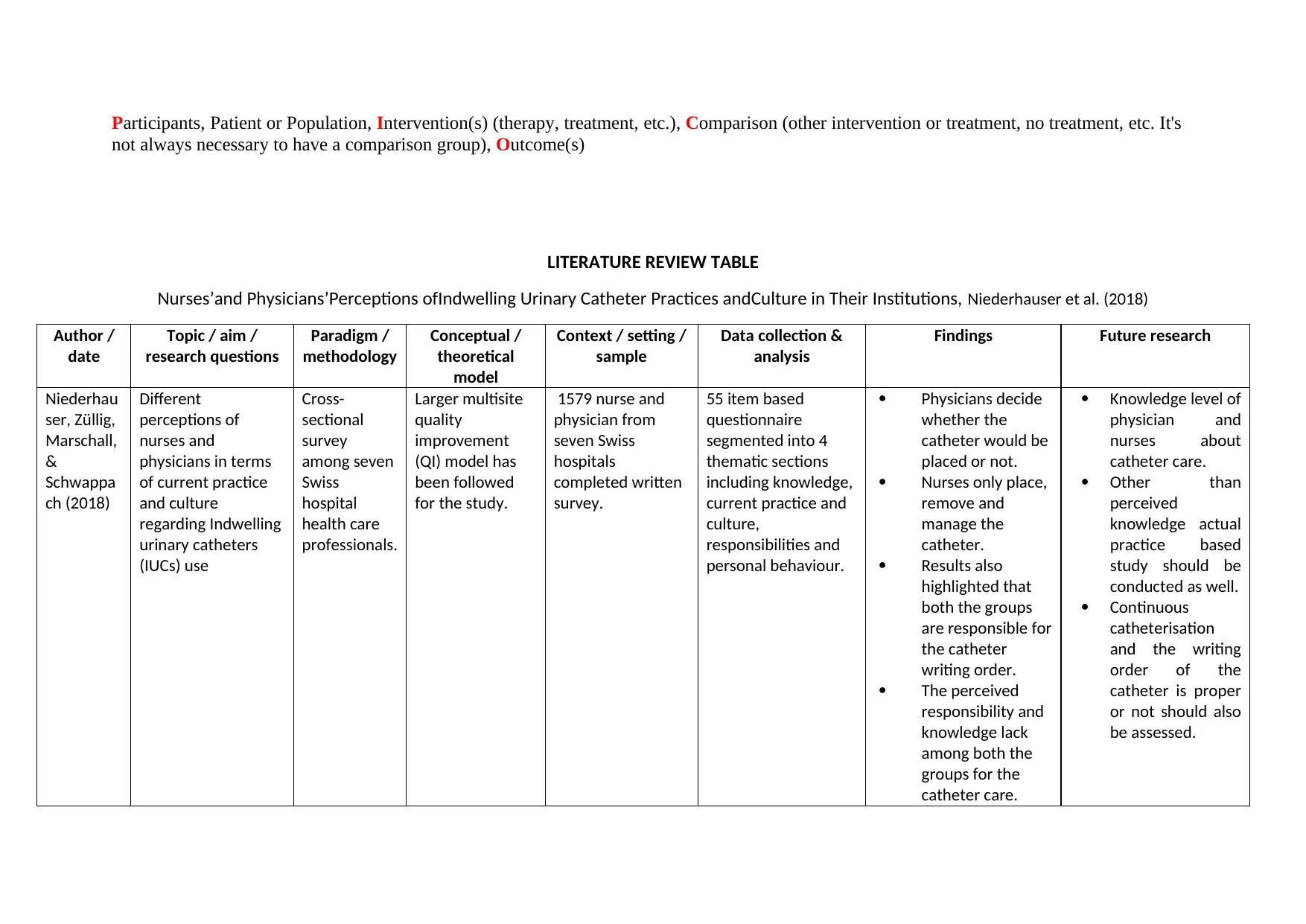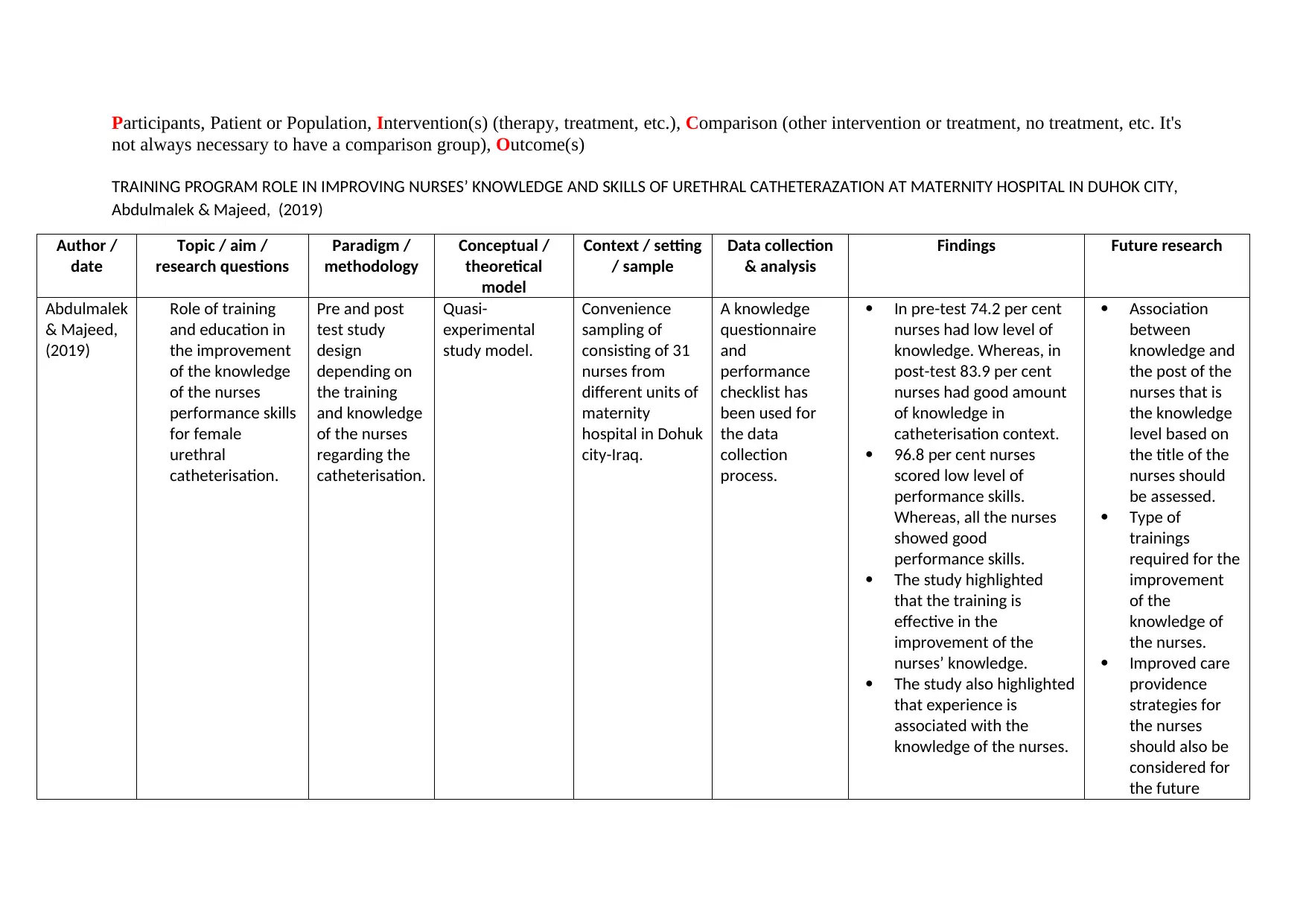Assessing Nursing Knowledge of Catheter Care Guidelines: A Report
VerifiedAdded on 2022/10/04
|3
|606
|15
Report
AI Summary
This report focuses on assessing nurses' knowledge of evidence-based indwelling urinary catheter (IUC) care guidelines in a hospital setting. The study employs a quantitative descriptive design, utilizing questionnaires distributed to registered and enrolled nurses across medical and surgical wards. The report includes a literature review table summarizing relevant studies on IUC practices and training programs. The methodology section details the research design, including population, sampling, recruitment, and timeline. The aim is to determine nurses' knowledge of IUC care guidelines, identify potential knowledge gaps, and explore the need for further training to improve patient outcomes and reduce catheter-associated urinary tract infections (CAUTIs). The report emphasizes the significance of the research in improving patient care, reducing CAUTI rates, and informing the development of strategies to enhance nursing training and education regarding evidence-based IUC guidelines. The report also includes a discussion on data collection methods, questionnaire content, and proposed hypotheses related to nurses' attitudes, knowledge, and practices concerning catheterization.
1 out of 3




![[object Object]](/_next/static/media/star-bottom.7253800d.svg)